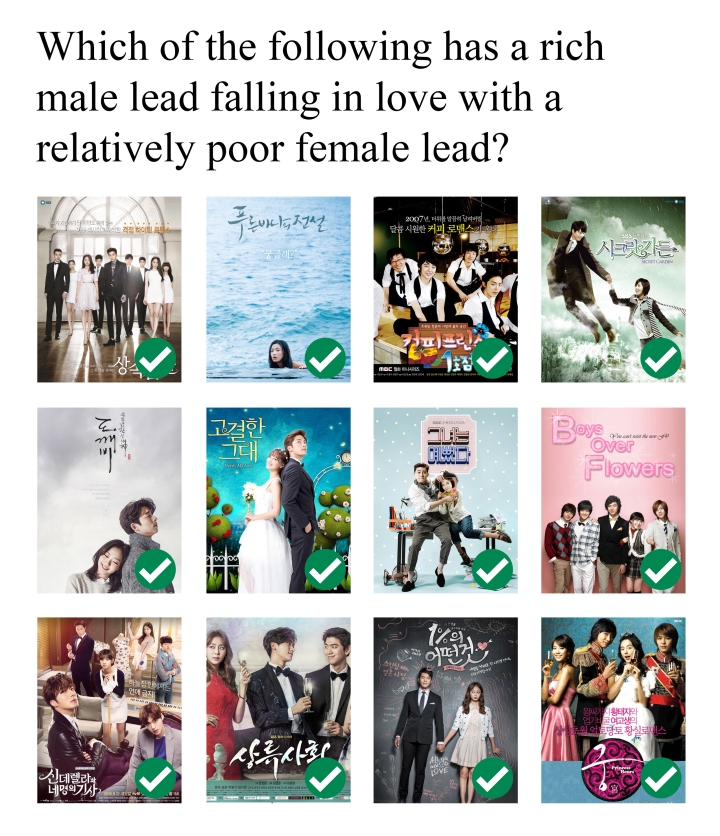
By SARAH CHUN
STAFF WRITER
From Korean food, technology, singers and culture, in the past ten years, South Korea has taken a great leap towards a higher global rank. A main cause of this “Korean wave,” also known as “Hallyu,” is the rise of Korean dramas. These dramas embody messages of family ties, romance, friendship and moral values.
Despite their captivating plotlines, South Korean dramas’ generic archetypes and unrealistic love portrayals cause a majority of the dramas to be too similar and unappealing to people following South Korean entertainment.
One reason for Korean dramas’ unappealing nature is the use of overly exaggerated and unrealistic situations. One of the most used archetypes is a one-eighty degree turn in the male and female leads’ relationship. In the beginning, the two have poor affiliations, but a coincidence, event, or time heals their relationship, and eventually causes them to fall in love. This is demonstrated in My Father is Strange, where Byun Mi-young and actor Ahn Joong-hui at first despise each other, but when Mi-young gets a job as Joong-hui’s manager. Through many interactions and spending a great amount of time together, they develop feelings for each other, and by the end of the drama, they are on dating terms.
Another common archetype is the son from a rich family and a daughter of a less fortunate background fall in love. Already, both of these archetypes can be found in one of the most iconic Korean dramas ever; Boys Over Flowers. Female lead Geum Jan-di, a humble college student, and a male lead, wealthy and bourgeois Gu Jun-pyo start out despising each other, but over a course of time, Jun-pyo develops feelings for Jan-di, who eventually reciprocates her feelings. Because of these overused characteristics, a majority of Korean dramas become redundant, unoriginal, and too predictable.
This takes away from the suspense and cliff-hangers dramas should have, and I say this from personal experience. My sister and I have been watching Korean dramas together all our life, and in recent years, we have started to predict the drama’s outcome all too easily. Just by watching a drama’s pilot episode, we could pick out the couple, the plotline and the ending. We still watch the dramas to the end, but we feel less in suspense, because we already know in the back of our heads what will happen.
On the other hand, fans may argue that Korean dramas are unique and down-to-earth. This is true, because many dramas circulate around modern-day issues that many face; such as poverty, and a struggle to find one’s place in society. They also give the audience a sense of hope and reassurance that there are others experiencing the same problems they are. However, directors should realize the redundancy in themes for the past several years, and try to think of new topics.
In addition, Korean drama viewers attain a false impression of romance. The main characters seem too good to be real people; charming, kind, good-natured and attractive. As a result, young viewers grow up expecting to meet a perfect match like those in dramas. Instead of illustrating perfect relationships with flawless characters, Korean dramas should step away from the fairytale-like situations, and move towards more pragmatic romantic plotlines.
In the end, Korean dramas convey false impressions of romantic life along with overused archetypes, making them too redundant and predictable. Despite this, Korean dramas will continue to prosper along with South Korean culture’s growing popularity.